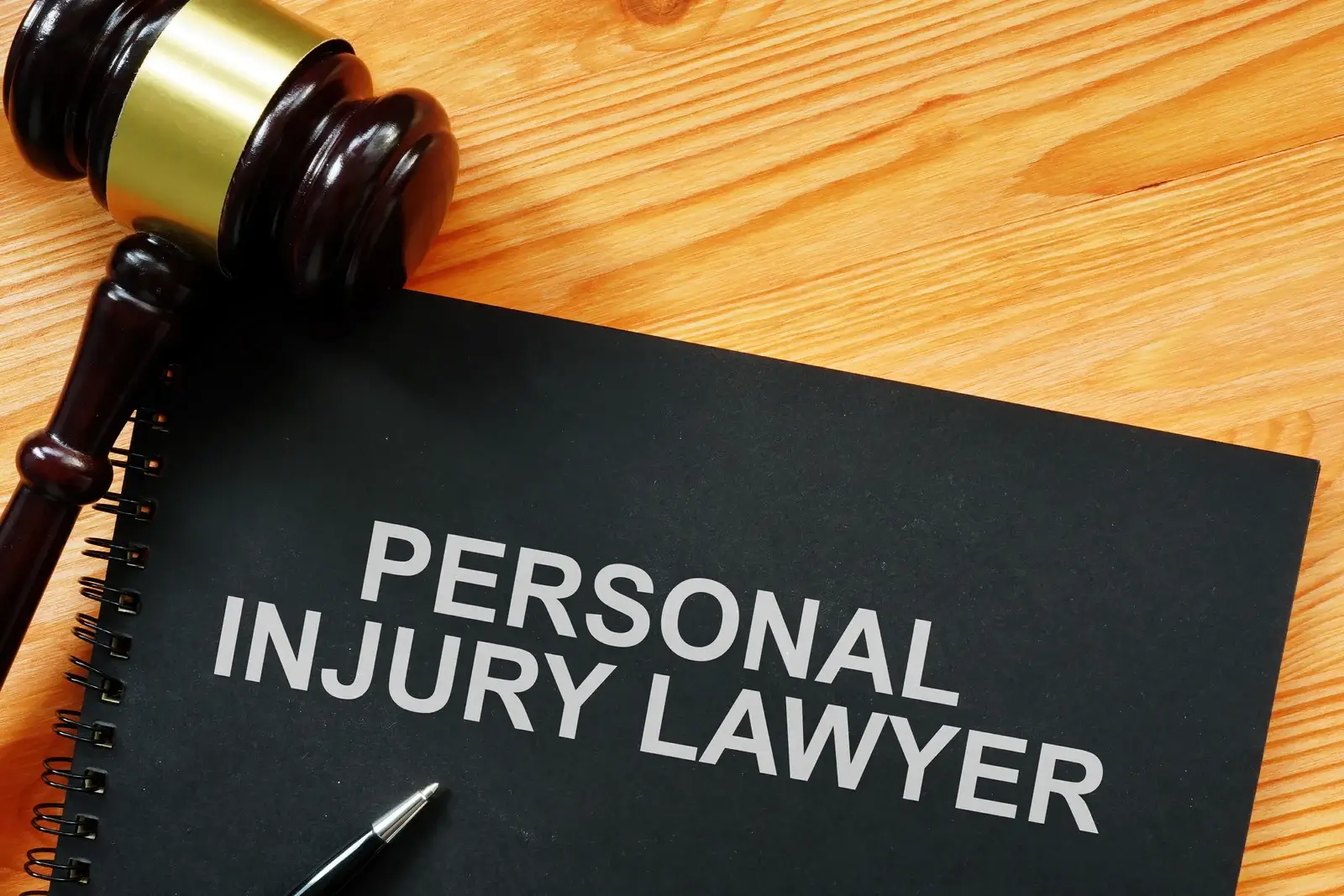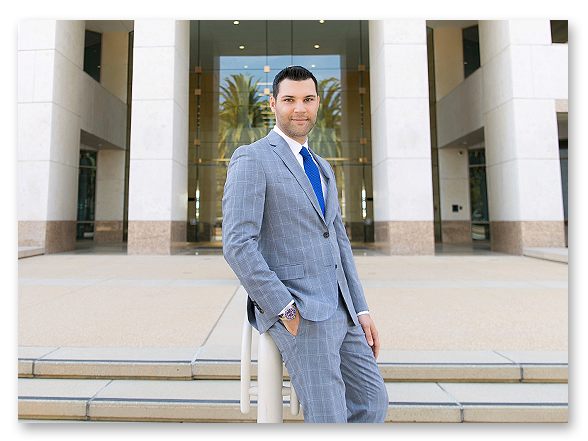 Personal injury law entitles accident victims to full compensation for the expenses, lost income, and intangible damages resulting from the incident. Damages include medical bills, lost wages, pain and suffering, and other harms endured by the plaintiff. Funding for settlements and awards usually comes from insurance companies with teams of lawyers paid to mitigate losses. This entails establishing grounds to deny or reduce claims from a legal perspective.
Personal injury law entitles accident victims to full compensation for the expenses, lost income, and intangible damages resulting from the incident. Damages include medical bills, lost wages, pain and suffering, and other harms endured by the plaintiff. Funding for settlements and awards usually comes from insurance companies with teams of lawyers paid to mitigate losses. This entails establishing grounds to deny or reduce claims from a legal perspective.
Insurance company adjusters and lawyers rely on three main strategies to achieve these ends:
- Blaming the victim for denying the claim altogether.
- Shifting part of the blame onto the victim to reduce compensation under Washington’s pure comparative negligence law.
- Objecting that damages are less than the plaintiff maintains.
In any case, they may use one, two, or all of these approaches.
Your personal injury lawyer Spokane fights back at these attempts to shortchange you. You deserve full compensation for all the financial and non-pecuniary damages forced onto you by someone else’s negligence. Never assume that you are due less because an accident may be partly your fault or some of your losses are non-financial. Under Washington law, these are never obstacles to receiving full compensation, and your personal injury lawyer in Spokane ensures you receive every penny owed.
What Is Considered a Personal Injury?
Under the law, a personal injury claim results from an injury caused by another’s negligence, recklessness, or intentional action. However, not all injuries result in a personal injury claim. As a result, many accidents occur without another party being at fault.
For instance, drivers often proceed too quickly on wet pavement, leave the roadway, and sustain an injury in a one-car collision. Assuming the driver had no passengers, no one else suffered injury or property damage. Further, presuming the road was in acceptable condition, the driver has no claim due to poor road maintenance. As such, the motorist is responsible for their injuries and property damage.
However, imagine this driver proceeded too quickly and struck another vehicle, causing property damage and injuring the other driver. In that situation, the other motorist has a personal injury claim because their losses stemming from another’s negligence (driving too fast for conditions).
In another case, a motorist may cause a two-car collision through recklessness. Imagine if the first driver exceeded the speed limit by thirty miles an hour in the rain while texting and crossed the center line, causing a head-on collision. For example, a plaintiff’s lawyer could argue that the defendant caused the accident recklessly.
Personal injury cases based on intentional acts result from maliciousness. For example, assaults and shootings are intentional acts. The perpetrators have criminal and civil liability. Victims can win a monetary award in civil court in addition to the sanctions imposed on the defendant by a criminal court.
In addition, even if no criminal charges are filed, or the criminal case fails, any civil case proceeds under the lower preponderance of the evidence standard. A preponderance of the evidence means a jury finds for the plaintiff if the claim is more likely true than not rather than proof beyond a reasonable doubt. In addition, a lack of criminal charges or an acquittal does not qualify as a defense in intentional personal injury cases.
Types of Personal Injuries Our Lawyers Handle
Our personal injury attorneys handle all cases, from car accidents to defective products to wrongful death. Some of the most common include the following:
Bicycle Accident
Spokane, Washington, provides an excellent environment for bicycle riding. A mild climate, warm summers, and pleasant atmosphere entice thousands of people to bike the paths and roadways of the Spokane region.
Unfortunately, many drivers fail to proceed with prudence when sharing the road with cyclists. We see many cases where motorists followed bicycles too closely, rear-ended them at intersections, or turned into them. Most motorist-bicycle accidents occur because of driver negligence, though some cases cross over into reckless driving.
Not all bicycle accident claims result from motorists. Sometimes, a bicycle is defective, resulting in a lawsuit against the maker. In other cases, poor road maintenance or design may result in liability for the city.
Car Accident
When many people think of personal injury cases, car accidents come to mind first. This makes sense because car accidents are a frequent cause of injury, and most result from someone’s negligence or recklessness.
The key to prevailing in a car accident case is proving the defendant acted with negligence or recklessness and that the action caused the injuries. Defense attorneys frequently try to shift some blame onto the plaintiff to reduce claims payouts. Under pure comparative negligence, every 1% of the responsibility the defense passes on to the plaintiff is 1% less they must pay. Our aggressive litigators negotiate hard and take cases to trial if the defendant refuses to accept their full liability.
Catastrophic Injury
Any accident or intentional action can result in a catastrophic injury. The term catastrophic injury refers to physical damage to a person that results in long-term or lifelong ramifications. Plaintiffs often have ongoing medical care needs, lost careers, and suffer the permanent inability to participate in life and family fully.
For instance, a person may sustain head trauma in a car accident resulting in a traumatic brain injury (TBI). TBI often leads to permanent damage that can impede memory, impair speech, and alter personalities. Due to these impacts, the victim may need ongoing medical care and assistance with daily living. At the same time, TBIs may force victims out of the workforce and render them unable to continue in family activities as before, such as parenting young children.
All of these losses are compensable under Washington personal injury law.
Dog Bite
In Washington, dog owners are responsible for the injuries caused to another if their dog bites. Washington is not a “one bite” state, so no history of dog biting is needed to establish a case. The law is clear that the owner is always liable unless one of the following exceptions apply:
- The victim provoked the dog.
- The victim was trespassing, otherwise illegally on the dog owner’s property, or ignored warnings to stay off the property because of dogs.
Motorcycle Accident
Motorcyclists bear a higher risk on the roads than drivers of other vehicles, so cases tend to be of higher value. Though motorcyclists choose a more dangerous vehicle, they have equal entitlement to compensation, but injured riders face biker bias.
Biker bias is the irrational belief that someone must be at fault for their injuries if riding a motorcycle. This prejudice stems from the assumption that bikers are outlaws, ride while intoxicated or high, and that their entitlement to damages is reduced because they rode a motorcycle.
None of these is true. Most bikers are not outlaws and are entitled to full compensation for their damages regardless of whether they would have less severe injuries if they were in another type of vehicle.
Pedestrian Accident
Like motorcyclists, pedestrians bear more serious injuries than those in cars and trucks. As a result, some of the highest liability claims come from pedestrians. Unfortunately, many drivers seem to forget how vulnerable pedestrians are when struck by a motor vehicle, resulting in crosswalk accidents, stricken joggers, and injuries from reckless driving in parking lots.
Premises Liability
Premises liability law emanates from the idea that property owners are responsible for maintaining a safe environment. For instance, a homeowner must ensure the safety of guests, and businesses must guard customers against hazards. However, premises liability does not mean property owners are responsible for all accidents.
A premises liability case must demonstrate that the owner was somehow negligent to succeed. For example, if a grocery store left a puddle of spilled water in an aisle and a customer slipped and suffered an injury, that store is likely responsible for the damages. However, if a burglar enters the store and slips on spilled liquid, no claim exists because the store has no duty of care towards people illegally entering the premises.
Truck Accident
Truck accidents are another category where serious damages are prevalent. A big rig’s size ensures that the destruction is immense, whatever it hits. For example, when trucks hurt people, the driver and the trucking company have legal responsibilities.
Many truck accidents result from the egregious conduct of the driver or company. For example, a driver may have been texting and driving, resulting in a rear-end collision that causes multiple serious injuries. In another situation, a trucking company may have pressured the driver to continue driving while tired or ill, demanded employees stay on the road longer than legally permitted, or turned a blind eye to excessive hours or negligent and reckless driving.
Workers Compensation
The law mandates most companies carry workers’ compensation insurance. Under these plans, employees injured on the job have entitlement to compensation regardless of fault.
For instance, if a worker trips and suffers an injury, they receive compensation, whether the fall was his fault or the company’s. In addition, injured workers can receive medical bills and income replacement payments if their injury forces them off the job.
Wrongful Death
Wrongful death cases are brought on behalf of the surviving family members. As with other personal injury cases, wrongful deaths stem from negligent, reckless, and intentional acts. Some incidents result in criminal charges and a wrongful death suit, such as manslaughter in a DUI wrongful death or a murder committed during an assault. However, successful criminal prosecutions are unnecessary for a wrongful death claim to succeed in civil court.
For instance, negligence is the cause of a wrongful death case where a driver misjudged the distance, resulting in a tragic accident. Recklessness is the cause when a drag racer spins out of control and strikes another vehicle. Intentional action is the cause of a road rage incident where the perpetrator struck the other motorist and killed him.
Families have entitlement to economic-, non-economic, and punitive damages. Economic damages include expenses incurred due to the incident, such as funeral costs, lost income, and medical bills. Other monetary damages related to the loss of income or household help because of the wrongful death.
Non-economic damages attempt to compensate the family for the emotional and personal impact of losing a loved one, including pain and suffering and loss of important life relationships, such as the death of a spouse or a parent.
Pain and suffering in a wrongful death claim deal with the emotional distress of the family rather than the pain and suffering endured by the decedent. Suppose the deceased died after a painful period brought on by the defendant. In that case, the estate executor files a separate case called a survival action where compensation is paid directly to the estate.
Punitive damages are rare, even in wrongful death cases. To apply, the actions of the defendant(s) must have been unusually egregious. The court applies them in part as a deterrent. For instance, an auto collision causing a death that was a pure accident is unlikely to warrant punitive damages. However, wrongful death cases from intentional actions, such as striking the victim, may receive significant punitive awards.
What To Do After a Personal Injury Accident?
Seeking medical assistance is the most important thing regarding your health and establishing a case. When you receive care, the provider creates medical records that often play critical roles in personal injury cases. They prove that the damages relate to the accident and help quantify losses.
If able, document the scene with your phone and record witness contact information. Also, write down your recollection of the incident while your memory remains fresh.
How Does a Lawyer Help in a Personal Injury Case?
Attorneys help at every stage of a personal injury case. At the outset, they evaluate your claim’s chance of success and identify potential defendants. Next, they conduct a thorough investigation and gather pivotal evidence. Your attorney then establishes a strong negotiating position and holds insurers responsible for 100% of legally owed damages. If the defendant(s) refuse to make their clients whole, they take the case before a jury and litigate appeals.
What Damages Can I Receive for a Personal Injury?
Washington State entitles all personal injury victims to be economic- and non-economic damages.
Economic damages include the following:
- Medical bills
- Long-term care and household assistance
- Physical therapy
- Occupational therapy
- Transportation costs
- Lost income
- Lost benefits
- Other related expenses
Non-economic damages include the following:
- Pain and suffering
- Emotional distress
- Inconvenience
- Loss of consortium
- Other intangible losses
Courts award punitive damages when the defendant(s) actions were flagrant.
Contact a Top-Rated Personal Injury Lawyer Today
You may be entitled to compensation if you have been injured in an accident. Contact a Spokane personal injury lawyer for a free consultation.
Client Testimonials
Real Stories From Real People
Verdicts & Settlements
The Proof Is In The Pudding
Why Choose Alpine Law Group?
Hiring the right personal injury attorney will make a significant difference in your difficult and distressing situation. By not hiring an attorney, you’ll waste countless hours figuring out what you need to do next. You will also get, on average, 40% less when the settlement finally comes around, which will happen much faster with professional help.
Please contact us if you have any queries or want to know what you could be owed. In California, you have three years from the date of injury to file a claim and sue for compensation. If you want to go alone in court, the Spokane Courthouse is located at 1116 W Broadway Ave #3, Spokane, WA 99260, United States.
If you want to take professional help, our personal injury lawyer will be more than happy to help you.
Spokane Personal Injury FAQs
We understand that you have questions about the claims process. Below are answers to frequently asked questions about personal injury claims.
Will My Personal Injury Case go to Trial?
Only a tiny fraction of personal injury cases go to trial. Our legal team builds strong cases that the defense has virtually no chance of prevailing against. As a result, they usually settle rather than spend money on trial they will lose.
What Happens if I’m Partially at Fault for the Accident?
Washington is a pure comparative negligence state. Accordingly, personal injury victims receive compensation even when partly at fault. You are entitled to compensation even if a court determines you are majority liable. However, the court reduces your compensation by your assigned percentage of fault.
How Long Does a Personal Injury Lawsuit Take to Get a Settlement?
Most settlements occur in 1-2 years, with some complex cases taking longer; in rare cases, a settlement takes several years, such as during the appeals process.
How Long Do I Have to File a Personal Injury Claim?
Washington State law requires you to file a personal injury claim within three years of the accident. Exceptions exist in cases where the injury is discovered after the fact, such as a contaminated water case where cancer symptoms alerted the defendant only years after exposure to the toxins. For those cases, the three years start when the plaintiff becomes aware of the exposure.
What Happens If I Don’t File a Personal Injury Lawsuit in Time?
Cases filed after the statute of limitations expires face dismissal unless the plaintiff convinceS the court a legitimate exception applies.
What Should I Do if an Insurance Company Calls Me?
Always avoid conversations with the opposing insurer. They are vested in reducing or eliminating your compensation, so anything you say will be used to that end. Refer such calls to your lawyer.
How Much Is a Personal Injury Case Worth?
Personal injury claims range from a few thousand- to millions of dollars. The amount depends on the extent of injuries, cost of care, and impact on the victim’s life.
Do I Have To Take My Personal Injury Claim to Court in Spokane?
In rare cases, an insurer offerS fair compensation without going to court; however, they usually make a lowball offer at this stage, so consult an attorney before signing any agreements. The need to file the claim in court is almost a foregone conclusion to win total compensation.
What If I’m Injured by Someone Who Isn’t a Spokane Resident?
Residency makes no difference in a personal injury case. Anyone who caused you injury, whether the resident of another city, state, or country, is equally responsible under the law.
Residency could become an issue if the defendant resides in a country without legal or diplomatic ties to the United States. For instance, if a foreign national injured you and fled to his home country without governmental cooperation with the United States in civil litigation, collecting a judgment could be impossible.
Can I Sue a Government Agency for an Injury?
Yes. Government agencies frequently have personal injury liabilities. For example, if you were injured on government property, by a government vehicle, such as a municipal bus, or in any other way relating to a government agency, contact a personal injury attorney as soon as possible.





